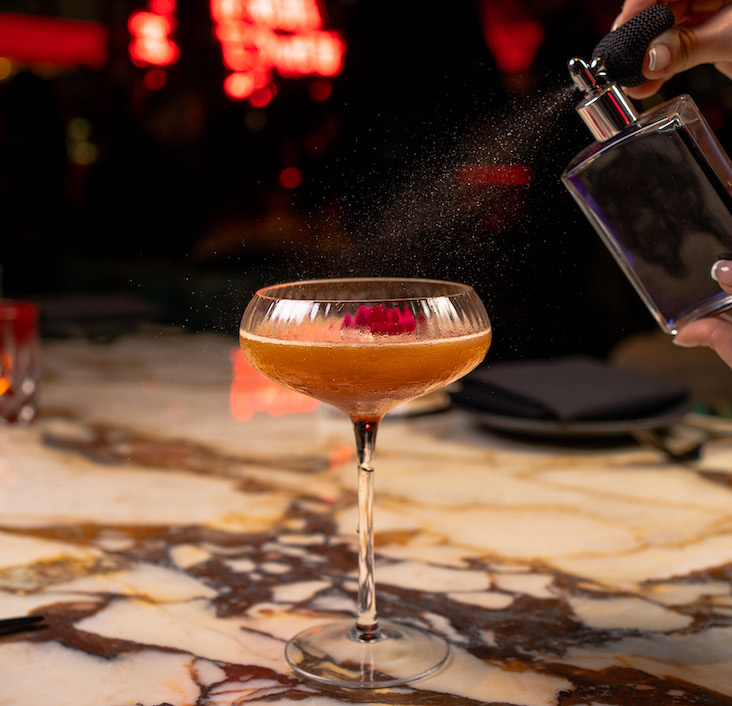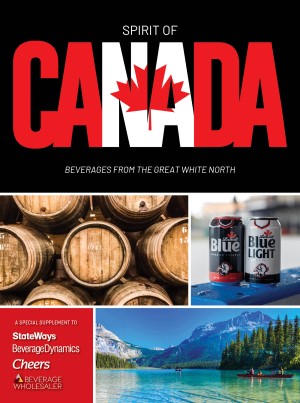A group of leading hospitality operators took on the topics of ignition interlocks and menu labeling, two hot-button issues for all restaurant and bar operators, during the Cheers Roundtable Discussion held at the Phillips Seafood headquarters in Baltimore, Md. in June, 2008
Both issues are playing out in various arenas across the country, and have serious implications for bar and restaurant operators. Should ignition interlocks become standard equipment on all cars, restaurant operators anticipate a severe decline in on-premise beverage alcohol sales. And as menu labeling regulations go into effect, operators are finding that assembling and presenting nutrition information to the guest for every food and beverage item is an onerous and costly endeavor. Our panel navigated these complex issues with serious concern about the business implications of each and a strong desire to influence the final regulations.
Here’s what the roundtable had to say about the question of ignition interlocks.
Cheers: Some of you are operating in states where low BAC first offender regulations are in effect. Has it impacted beverage sales?
Mary Melton: Definitely. In Arizona, off the top of my head, 25 percent of liquor sales were lost when ignition interlock went into effect. The regulation snuck up on us, and now we’re stuck with it. Operators should get involved before it happens to you.
Cheers: How much do consumers understand about ignition interlocks?
Bill Irvin: I’ve been standing at a bar, having a drink with people and talking about it. They think it’s a good idea on the surface. But when you point out that after that drink they might not be able to start their car, well, the tone changes. Bottom line: They’re not going to drink if they have that device in their car.
We make the highest profit on beverage, so we need to address this issue. We have to make the responsible consumers understand what universal ignition interlock means to them.
Marc Sachs: Yes, but we’re already in a world where responsible folks are making decisions about their alcohol budget—and I don’t mean monetary budget. They’ve changed their behavior to be more moderate. We’re now on the tightrope of taking someone else’s definition of responsibility–zero consumption–and applying it to our guest and our business.
Cheers: What about the industry? Are we doing what we should?
Stan Novack: The American Beverage Institute (ABI) is very vocal on it and working to be proactive and educate consumers. But industry associations—NBWA, DISCUS, Beer Institute, for example—they’re not coming along. DISCUS says it’s not in favor of low BAC first offender ignition interlock, but won’t come out in favor of the ABI media campaign to educate on the threat of universal application.
It’s like the 0.08 percent BAC fight. They’re afraid of how the industry will be perceived if they come out against it. But if you go that route, ignition interlocks will become standard on all cars.
Cheers: So the industry is fractured on the issue? How can we mend the rift?
Novack: There is a split between restaurant operators and some suppliers. We’ve had discussions, but there’s no movement yet.
The thing to say is that ignition interlocks have their place—they’re for high BAC repeat drunk driving offenders–and then ask the responsible consumer, “Do you want this in your car?” A public education campaign, like the one ABI is mounting, is very important.
DeConti: As operators, when would you want to be involved in the process? These bills can take up to three years to go through, and bill tracker services such as Lexis Nexis and Thomson West can help you keep tabs on its progress. It’s easy and the cost is minimal.
Irivin: I like the idea of a bill tracker. I was involved the smoking ban fight and I was amazed that no [operators] showed up at the hearings. They all waited till the last day, when it’s all over the news, but it’s too late. We need to get involved early on.
Cheers Do any of you discuss this with upper management in your organizations?
Sachs: It’s discussed, but not openly or often. The C-level is aware of it, but it’s difficult to know where to go on it.
Irivin: Get it down to taking 25 percent off the balance sheet and you’ll have their attention. People are going to change their habits pretty quickly.
Melton: We’re now running a test in Arizona stores where we’ve dropped prices on alcohol to see if people will come back to ordering a drink. We aren’t promoting the lower prices; we just changed them on the menu. It will be interesting to see what happens, if anything.
Doug Zeif: Ignition interlock will stimulate different choices. People are calling for brands now, and they’ll likely do so more often if this goes through. If you’re only having one, you’re going to make it a good one.
Cheers: Who has the most to lose if ignition interlocks become standard in all cars?
Novack: It won’t kill the restaurant industry, but it sure will change it. We’ll lose a big part of our profits. We can survive, but it won’t be comfortable.
Irvin: Most affected will be the neighborhood restaurants. And, of course, the guest, because you’ll remove a major component of enjoying the dining out experience.
Sachs: Ours is a difficult position to be in. Part of my head says it’s good—I have kids, after all—but the other part says it’s not good for my business. You’re punishing the many for the sins of the few.
Ed Farley: I like this philosophy on educating the consumer. We’re in a business of cultivating responsibility, and as a company, we’ve spent millions on advocating personal responsibilityt. We can add value to that effort, and also to server training and new programs to get customers in the habit of moderation.
Sachs: Yes, A-B’s done a great job, and continues to. Now we need to come together as an industry on this issue.
Ignition Interlock Update
Nine states—Alaska, Arizona, New Mexico, Illinois, Louisiana, Oregon, Nebraska, Colorado and Washington—currently mandate ignition interlocks be installed on the vehicles of first time drunk driving offenders with low blood alcohol content (BAC). Recently, similar proposals in California, South Carolina, Virginia and West Virginia were amended to require ignition interlocks only for high BAC repeat offenders. This is the application favored by the American Beverage Institute, the industry advocacy group based in Washington, D.C. comprised of restaurant chains, beverage suppliers and allied companies. The concern among ABI members is that low BAC first offender laws will lead to ignition interlocks becoming “universal”–standard equipment in all vehicles. Mothers Against Drunk Driving (MADD) is the primary driver behind ignition interlock legislation, and advocates universal ignition interlocks.
While a breathalyzer is the current device, technological advances are making interlocks fairly invisible to drivers. Transdermal sensors on steering wheels and other surfaces, optical scans, odor sensors and breathalyzers on key fobs are less intrusive and some can test BAC randomly without the driver’s participation. These devices would be set much lower than the current 0.08 percent BAC level for intoxication to allow for a margin of error.
For information on ignition interlocks, visit www.interlockfacts.com. For MADD’s viewpoint, visit www.madd.org.
Participants:
Richard Krumm
Food & Beverage Director
Ralph Brennan Restaurants
Marc Sachs
Corporate Beverage Manager
Uno Chicago Grill
Mary Melton
Director of Beverage
PF Chang’s China Bistro
Doug Zeif
Vice President, Food & Beverage
LXR Luxury Resorts
Bill Irvin
Director of Operations
Phillips Sea Foods
Stan Novack
Vice President, Concept Development
HMS Host
Ed Farley
Director, On-Premise Operations National Retail Sales
Anheuser-Busch
Elizabeth DeConti
Shareholder
GrayRobinson P.A.
Charles Forman
Senior Vice President & Group Publisher
Cheers
Peter Kowalke
Managing Editor
Cheers
Laddie Weiss
Conference Program Director
Cheers
Moderator
Donna Hood Crecca
Editor
Cheers




